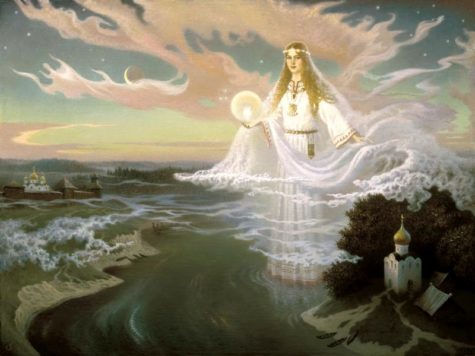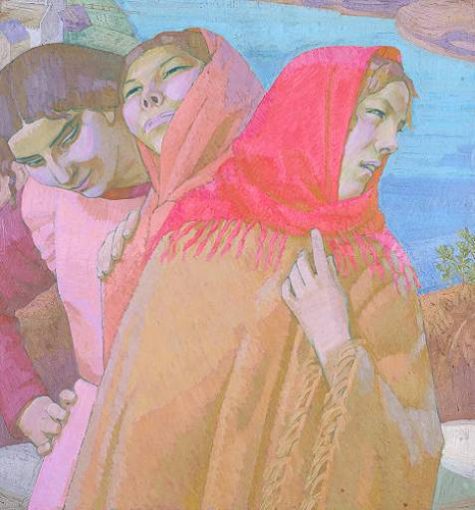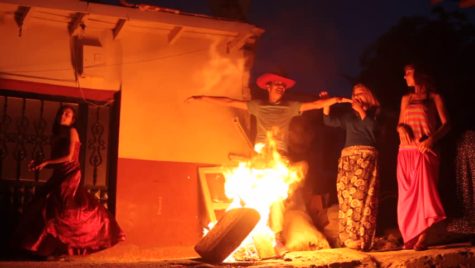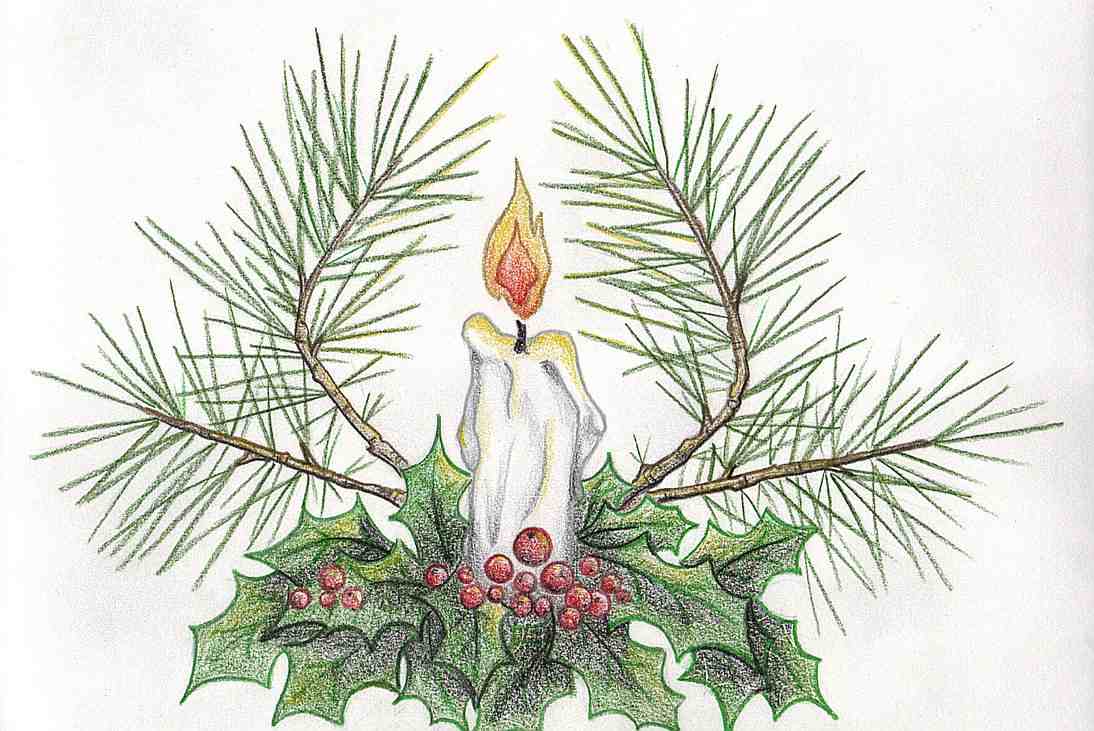Bulgaria
According to the book, 365 Goddess, January 19, is the day given to the Water Blessing Festival in Bulgaria. However, I think she must have been referring to the Anastenaria, a firewalking ritual performed primarily in May with a smaller one on an unspecified date in January, which culminates in a water blessing after the fire walking.
If you wish to celebrate today as a day of Water Blessings, here’s what you can do:
- Themes: Joy; Health; Cleansing
- Symbols: Water; Flowers; Fern; Birchwood
- Presiding Goddess: Kupala
About Kupala.
The Slavic goddess of springs and water, Kupala, whose name literally means “to bathe,” washes us with happiness and longevity. Oddly enough, she has a fire aspect too, which likely alludes to purification, protection, and transformation. Wildflowers, birch trees, and ferns are sacred to her.
To do today:
To bring a year filled with joy, contentment, and health, leave a natural-fiber cloth outside today to gather dew. Use it tomorrow to bathe in Kupala’s magic.
Take some flower petals to any moving water source (even a hose) and toss them on the stream. As you do, make a wish for something that will make you really happy. Let Kupala, in the form of the water, carry your wish toward manifestation.
To rid yourself of sickness, negativity, or a bad habit before the year gets really rolling, find a safe fire source (such as a candle that’s self-contained in glass). Put this on the floor and jump over it. As you do, say:
Old burns away; only the good, the good shall stay.
Old to new, old to new, Kupala, my heart renew.
This symbolically leaves the old behind and invokes Kupala’s aid in your efforts for positive change.
Source: 365 Goddess
I found this account of Mother March in an old book about Bulgaria, published in 1877. I love the way they used to celebrate the month of March. It occurs to me that it might be fun and informative to watch the weather this month and assign certain days to certain people and see what happens.
The month of March, which falls in the Spring equinox is called by the Bulgarians, Baba Mart, Old Mother March, and is the only female month of the year, the others being considered as masculine. March in Bulgaria is like April in England, inconstant and capricious, alternating between storms and sunshine; and it is here specially dedicated to the fair sex, who during its continuance enjoy complete idleness, doing no work, and asserting a sort of temporary superiority over their husbands, which sometimes even goes to the length of administering a thrashing, without fear of reprisal.
In order not to displease Baba Mart, the women do not even smear the floors of their houses with clay (a work which is usually performed every week), wash, weave, or spin; for if they were to do so Baba Mart would give no rain during the year, and lightning would infallibly strike the house in which she had been thus insulted.
There are certain clever old women who, knowing where Baba Mart resides, pay her a visit, and from her information assign to each of the married women a day of the month on which the weather will be according to the character of the lady whose day it is; thus, if Mrs. Dimitri gets the 1st of March, it will be fine, with perhaps a warm and gentle shower or two, for she is an amiable and soft-hearted woman, a little give to shedding unnecessary tears upon any pretext. Mrs. Tanaz is a loud-voiced shrew, so her day will be made up of wind, black clouds, snow, and heavy rain. “Don’t go out shooting tomorrow, Chelibi, for it is the day of Kodja Keraz’s wife, and she has such an awful temper that the weather is sure to be horrible.”
When a woman is assigned a day for the first time, her character is judged by the state of the weather; fortunately this system is not extended to young ladies on their promotion, or many a match might be broken off by an inopportune storm in the month of March.
Found in: Twelve Years study of the Eastern Question in Bulgaria
In Bulgaria and Turkey, the Kakava Festival is celebrated every year on the evening of May 5th and and continues in the dawn of the next day. the morning of May 6th.
The event represents the rebirth of green and the purification of one’s self. The Roma emphasize the dates strongly, as May 6th is celebrated as the Hidrellez Festival. During the Kakava Festival, fires are lit on the eve of May 5th and celebrations are made during the whole night. After lighting the fire and jumping over it, music playing and dancing is performed.
Edirne, Turkey, home to a large Roma community, experiences large celebrations with people from all over the country as well as foreign tourists descending into the city for Kakava, a gathering of the community, for Hıdrellez.
After setting a bonfire in Sarayiçi, a historical district of Edirne, the crowd spends the night dancing. The official part ends after the distribution of rice dish pilaf to the around 5,000 attendees. The celebration continues in the dawn of the next day at the bank of Tunca River. As the sun rises, streams of revelers flock to the river where they wash their faces in the river “for prosperity and health.” They then leave candles on the river after making wishes and tying ribbons to a wish tree. Hundreds also wash their possessions, from clothes to shoes, in the river in the hope that the water from the river will bring good fortune to them.
Collected from various sources






